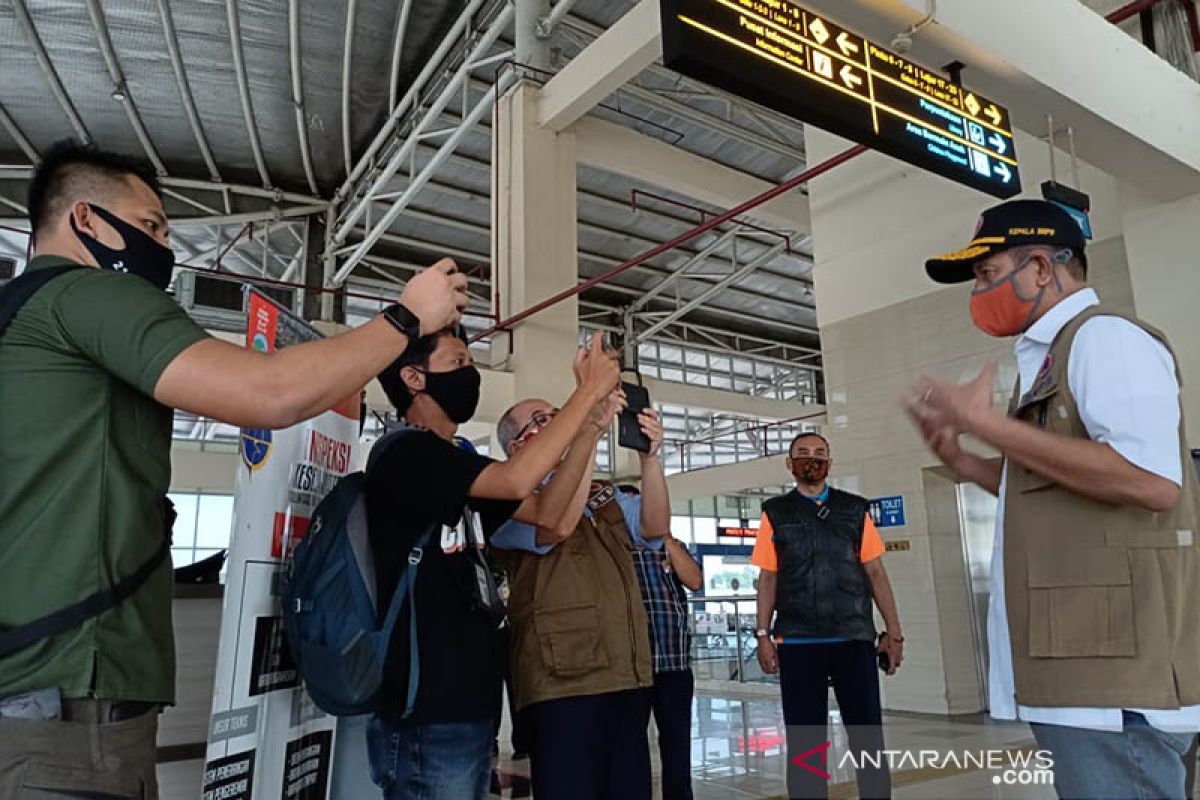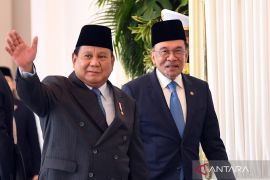Therefore, the assistance scheme that the government has offered to micro, small and medium-scale enterprises and other business entities need also be given to our media outletsBogor, W Java (ANTARA) - The ongoing coronavirus pandemic has become a global disaster that causes serious implications to public health and economic sectors in so many countries.
In Indonesia, the COVID-19 has severely affected its tourism industry owing to the enforcement of large-scale social distancing measures and travel restrictions as well as border closure that has significantly reduced foreign tourist arrivals.
As a result, business players in the tourism sector, like hotels, restaurants, creative industries, and informal businesses, have sent many of their workers home. In West Java Province alone, at least 48,289 workers have been sent home.
The creative industry workers suffered the most as 14,991 of the 48,289 affected workers were from this field, while 14,721 others were employed in the arts and cultural field, according to Head of the West Java Tourism Office Dedi Taufik.
The remaining workers comprise 12,143 hotel workers; 5,179 destination workers; 2,768 workers employed with business agencies; 1,179 restaurant workers; and, 1,107 travel agency workers.
Local businessmen have taken the decision to send workers home after observing a significant decline in tourism sector-related business activities amid the COVID-19 outbreak. Owing to this, they have shut down their businesses, Taufik explained.
In West Papua Province, as many as 6,823 workers had also been sent home. Sixty seven others had even lost their jobs, Head of the West Papua Provincial Government's Workforce and Transmigration Office Frederik Saidui recently revealed.
Among the workers severely affected by the impact of the coronavirus pandemic were porters in the cities of Manokwari, Sorong, Kaimana, and Fakfak. They lost their jobs after state-owned ship operator PT Pelni suspended services, he stated.
What happened to the country's tourism industry amid this COVID-19 crisis is publicly known thanks to the news coverage of credible media outlets.
However, like the tourism industry and many other business sectors which have been hard hit by the impact of COVID-19, the fate of media outlets in Indonesia is not as good as theirs.
Many media companies in the country do not easily survive the coronavirus crisis despite the government and people's recognition on their important role in reporting the current issues and their implications on the nation's socio-economic life.
In responding to impact of COVID-19 on Indonesia's media industry, the associations of media companies and media workers recently echoed their concerns over the coronavirus crisis and appeals to the government (SS Kurniawan in Kontan.co.id, 2020).
They called on the Indonesian Government to allocate funds for media companies to help socialize its policies, programs, or campaigns on COVID-19 mitigation efforts.
The association of media companies and media workers also appealed to the government to provide the country's print media companies with subsidized prices of newsprint paper up to 20 percent per kilogram.
They also urged the government to give them subsidized electricity costs up to 30 percent for the usage of May-December, 2020; and to pay journalists' excess payments of their Health Care and Social Security Agency (BPJS Kesehatan) during the COVID-19 outbreak.
Sukamta, a legislator representing the Prosperous Justice Party (PKS) Faction at the House of Representatives (DPR), supports the media companies and journalists' petition saying that the government needs to assist the mainstream media to survive the crisis.
He argued that media outlets play an important role in disseminating information, educating our people, and combating hoaxes on COVID-19.
Related news: Indonesian media urged to provide credible information on COVID-19
Related news: The "super journalist" is on duty
Without the active participation of Indonesia's credible media outlets, the government's information on its efforts to fight against new coronavirus disease would not easily reach the people, Sukamta said.
To this end, the government must assist print and electronic media as well as news service in the country because this ongoing global pandemic of coronavirus has hit them harder than before, he said.
Prior to the COVID-19 crisis, several media outlets in Indonesia have actually suffered hardship in their business partly due to the people's changing ways of consuming news.
"Therefore, the assistance scheme that the government has offered to micro, small and medium-scale enterprises and other business entities need also be given to our media outlets," he said.
The government, for instance, could offer tax relaxation and cooperation in information dissemination on COVID-19-related issues. Apart from the government's generosity, Sukamta suggested that the media outlets still maintain their role as watchdog of the government.
We all need to make sure that all credible media outlets in the country are able to survive the COVID-19 crisis by considering their important role in helping the nation's fight against the pandemic.
Related news: Indonesian govt urged to assist media outlets amid COVID-19 pandemic
Related news: Media and politicians' lust: fuel of outrages on pandemic stage
Editor: Fardah Assegaf
Copyright © ANTARA 2020












